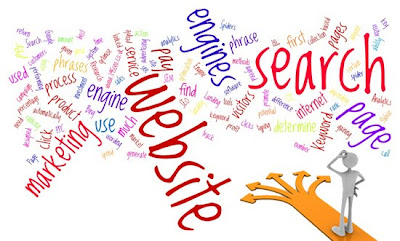Enhancing the link popularity of an web-site to increase natural search-engine rankings is a methodology used by lots of search-engine Optimization, or SEO, pros and site owners known as link building.
The six most used search engines are Google, MSN, and Yahoo. Each of these search engines determines the rating position for a website's keywords by thinking about the link popularity of an web-site in combination with its link quality. PageRank is the methodology used by Google's algorithm to determine the worthiness of an web-site. According to Google, PageRank is a reflection of their views on the importance of web pages by utilizing over 2 billion terms and 500 million variables to determine the rating of a web page. Those that are deemed to be more important according to these variables are most likely to appear at the top of the list of search results.
Link Popularity is not Determined By All Inbound Links
The importance of every page that casts a vote is also thought about by PageRank, as votes from sure pages have greater value than others, leading to the linked page having greater value. Google believes their expertise utilizes the collective intelligence of the world wide web in determining the general importance of a web page. we reckon that their methods generate useful products and improve search quality by applying a practical approach. The growth rate of inbound links, quality of inbound links, and volume of inbound links are all considerations of PageRank and link popularity used by Google.
1. No-Follow
Link popularity standards are such that search engines may only recognize a portion of the inbound links that are pointed to an web-site. There are sure link types that won't pass link popularity standards:
As a deterrent to spam, Google created the rel=nofollow link attribute. While this attribute was originally created to get rid of spam on blogs, it's also served major sites such as Yahoo Answers and Wikipedia. it is not unusual for numerous inbound links to have rel=nofollow embedded in the link code. All links with this attribute will be disregarded by MSN, Yahoo, and Google.
2. Tracking Codes
3. No-index, Robots.txt, and Indexing
To permit advertisement publishers to keep track of the number of times an advertisement is clicked and the number of impressions of an advertisement, all but around 1 percent of contextual ads and banners use a tracking code. Outbound clicks are tracked by tracking technologies using redirects. it is these redirects that strip the link popularity prior to it reaching the location URL.
there are a selection of reasons why there are lots of pages on the world wide web that are not indexed by the top search engines. It could be because the page has basically not yet been discovered by what's known as a "search engine spider". It may even be that the webmaster my not require the page to be indexed, which can be done by including a No-Index META tag. It could even be because the page is included as an exclusion within the robots.txt file, or the page could be banned from the search index. Any link that is included on a page that meets any of these criteria won't be conducive to link popularity.
Inbound Links Should Have A Natural Look
Sophisticated radar systems have been developed by major search engines to be sure that properly created sites will be rewarded. These sites will typically demonstrate the proper mix of inbound links. This mix includes six important parts, which are:
1. Landing Pages
2. Link Growth
it is a common occurrence that inbound links will only point to the home page or index of an web-site. it is important, however, when developing web-site authority to point links to various pages of the world wide web-site by using relevant anchor text from incoming sources.
Link growth is a substantial part in the trust algorithm of search engines. Any web-site that naturally receives giant spikes in inbound links will normally continue receiving inbound link growth consistently. Not adding new links consistently can set off an alarm in the event a bunch of inbound links are built quickly. Planning a proper link growth strategy is essential to seeing lovely results and SEO.
3. Anchor Text Diversity
A backlink is another term for an inbound link. lots of high rating sites show diversity in their backlink portfolio. all of all backlinks should be branded. In other words, the anchor text should include your brand name than a specific keyword. Remaining anchors should be focused on keywords, although it is important not to target a specific keyword often in the anchor text as the backlink structure won't look natural.
Practical Off Grid Real Estate in Durham Region
-
If the noise, traffic, and price tags of Toronto are starting to wear you
down, an off-grid or semi-off-grid home in Durham Region might be exactly
the k...
3 months ago






No comments:
Post a Comment
Comments containing links will be marked as spam and not approved. We moderate every comment. If you want to advertise on this blog it is $30 per link.